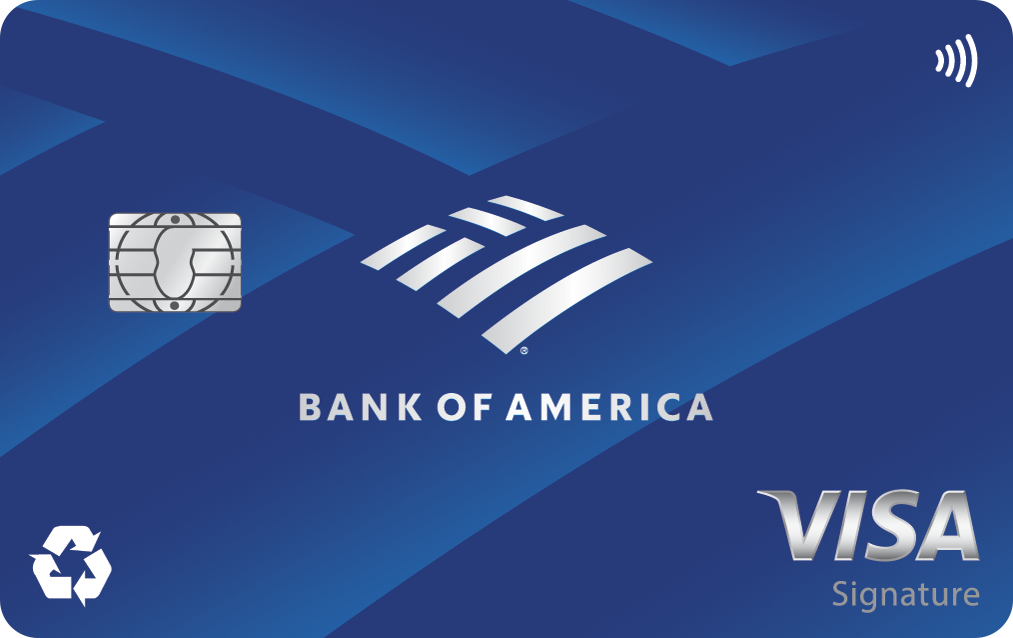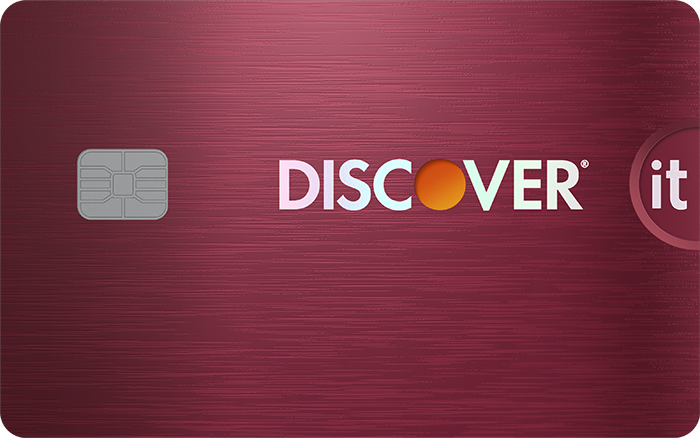Your FICO® Score is like a financial report card, but instead of grades, it uses numbers to show lenders how risky (or trustworthy) you are when it comes to borrowing money. Whether you're applying for a credit card, buying a car, or refinancing your mortgage, your FICO® Score plays a big role in the rates and terms you'll qualify for.
I started my credit journey about eight years ago, and I've definitely learned a few things the hard way.
Here's everything I know now about how FICO® Scores work, why they matter, and how I stay on top of mine.
What is a FICO® Score?
A FICO® Score is a three-digit number ranging from 300 to 850. It's calculated using information from your credit reports and is used by over 90% of top lenders when making lending decisions.
If you're brand new to credit, you might not have a FICO® Score at all yet -- it usually takes about six months of credit activity to generate one.
Not all credit scores are FICO® Scores. Some tools use VantageScore instead -- and while they can be helpful for general tracking, they don't always match what lenders are actually seeing.
What is my FICO® Score used for?
Whenever I apply for something that involves borrowing money (most recently, a mortgage), my FICO® Score is one of the first things that gets checked. It gives lenders a quick read on how reliable I've been with credit in the past.
Here's what your FICO® Score can impact:
- Credit card approvals and interest rates
- Auto loans and leases
- Mortgages and refinancing options
- Apartment rental applications
- Utilities and cellphone contracts
- Insurance premiums (in some states)
- Even some job applications
Credit card comparison
We recommend comparing options to ensure the card you're selecting is the best fit for you. To make your search easier, here's a short list of standout credit cards.
| Offer | Our Rating | Welcome Offer | Rewards Program | APR | Learn More |
|---|---|---|---|---|---|
|
5.00/5
Our ratings are based on a 5 star scale.
5 stars equals Best.
4 stars equals Excellent.
3 stars equals Good.
2 stars equals Fair.
1 star equals Poor.
We want your money to work harder for you. Which is why our ratings are biased toward offers that deliver versatility while cutting out-of-pocket costs.
|
Discover will match all the cash back you’ve earned at the end of your first year. INTRO OFFER: Unlimited Cashback Match for all new cardmembers. Discover will automatically match all the cash back you’ve earned at the end of your first year! There’s no minimum spending or maximum rewards. You could turn $150 cash back into $300. | 1% - 5% Cashback Earn 5% cash back on everyday purchases at different places you shop each quarter like grocery stores, restaurants, gas stations, and more, up to the quarterly maximum when you activate. Plus, earn unlimited 1% cash back on all other purchases. |
Intro: Purchases: 0%, 15 months Balance Transfers: 0%, 15 months Regular: 17.49% - 26.49% Variable APR |
||
|
5.00/5
Our ratings are based on a 5 star scale.
5 stars equals Best.
4 stars equals Excellent.
3 stars equals Good.
2 stars equals Fair.
1 star equals Poor.
We want your money to work harder for you. Which is why our ratings are biased toward offers that deliver versatility while cutting out-of-pocket costs.
|
N/A | N/A |
Intro: 0% intro APR for 21 months from account opening on purchases and qualifying balance transfers Purchases: 0% intro APR for 21 months from account opening on purchases Balance Transfers: 0% intro APR for 21 months from account opening on qualifying balance transfers Regular: 17.49%, 23.99%, or 28.24% Variable APR |
||

Apply Now for Bank of America® Travel Rewards credit card
On Bank of America's Secure Website. |
4.70/5
Our ratings are based on a 5 star scale.
5 stars equals Best.
4 stars equals Excellent.
3 stars equals Good.
2 stars equals Fair.
1 star equals Poor.
We want your money to work harder for you. Which is why our ratings are biased toward offers that deliver versatility while cutting out-of-pocket costs.
|
25,000 points (worth $250) 25,000 online bonus points after you make at least $1,000 in purchases in the first 90 days of account opening - that can be a $250 statement credit toward travel purchases | 1.5-3 points per dollar Earn unlimited 1.5 points per $1 spent on all purchases, with no annual fee and no foreign transaction fees, and your points don't expire as long as your account remains open. Earn 3 points per $1 spent on travel purchases booked through the Bank of America Travel Center. |
Intro: 0% Intro APR for 15 billing cycles for purchases, and for any balance transfers made in the first 60 days. After the Intro APR offer ends, a Variable APR that’s currently 17.49% - 27.49% will apply. A 3% Intro balance transfer fee will apply for the first 60 days your account is open. After the Intro balance transfer fee offer ends, the fee for future balance transfers is 4%. Balance transfers may not be used to pay any account provided by Bank of America. Purchases: 0% Intro APR for 15 billing cycles for purchases Balance Transfers: 0% Intro APR for 15 billing cycles for any balance transfers made in the first 60 days Regular: 17.49% - 27.49% (Variable) |
Apply Now for Bank of America® Travel Rewards credit card
On Bank of America's Secure Website. |
FICO® Score ranges
Your score falls into a range that gives lenders a general idea of how risky (or not) you are as a borrower. Here's how it breaks down:
- Excellent (800–850): You've got stellar credit. You'll likely qualify for the best rates and terms.
- Very Good (740–799): You're seen as a low-risk borrower and should get competitive offers.
- Good (670–739): Still solid. You'll likely get approved, but maybe not at the lowest rates.
- Fair (580–669): You might still qualify, but with higher interest rates or less favorable terms.
- Poor (300–579): You're seen as a high-risk borrower. It may be tough to get approved for new credit.
How your FICO® Score is calculated
FICO uses five main factors to determine your score:
Payment history (35%)
This is the biggest factor. Lenders want to see that you consistently pay your bills on time. Even one missed payment can cause a dip.
Amounts owed (30%)
This looks at how much debt you have compared to your available credit -- also called your credit utilization. Most places recommend keeping this under 30%, but I like to stay under 5%-10%.
Length of credit history (15%)
The longer your accounts have been open, the better. That's one reason I don't close my old credit cards unless I absolutely have to. And one reason my score is still only a "Very Good" and not "Excellent," despite paying on time every month. I just simply haven't had a long enough credit history. One day!
Credit mix (10%)
Having a mix of different types of credit -- like credit cards, student loans, and a mortgage -- can help your score (as long as you manage them responsibly).
New credit (10%)
Opening a bunch of new accounts in a short time can be a red flag. Each application may cause a small, short-term dip in your score. It's temporary, but I try to space out applications unless I really need something.
Why your FICO® Score matters
Your score affects more than just loan approvals -- it also plays a big role in how much money you'll save (or lose) over time.
Here's what a higher score can unlock:
- Qualify for lower interest rates
- Get approved for top-tier credit cards
- Secure better loan terms
- Even lower your insurance premiums in some states
Basically, the higher your score, the less you'll pay to borrow money, and the more options you'll have.
How to check your FICO® Score for free
There are a few ways I've found to check my FICO® Score without paying anything or hurting my credit:
- Experian: You can get your FICO® Score directly from Experian for free. That's my go-to for the official number.
- Banks and credit card issuers: Some offer FICO® Score access as a customer perk -- just double-check that it's a FICO® Score, not VantageScore.
- Lenders or loan servicers: If you already have a loan, your provider might show you your score in your account dashboard.
Just make sure you know which kind of score you're looking at -- I've seen plenty of apps advertise "your credit score," but they're using a different model than what lenders rely on.
How I improved my FICO® Score
If your score could use a little love, here are the things that made the biggest difference in my score:
- Paying every bill on time: I set calendar reminders, autopay, and backup alerts. It's the easiest way to protect my score.
- Paying down balances: I focused on my highest-interest cards first and chipped away at the total until my utilization dropped.
- Keeping old accounts open: Even when I stopped using a card, I kept it open (you can do the same as long as there's no annual fee). It'll help lengthen your credit history..
- Checking my credit reports for errors: I pull mine from AnnualCreditReport.com -- it's free, and I've caught small errors that could've hurt my score if left unchecked.
Final thoughts
Your FICO® Score isn't just some random number -- it's one of the most important tools you have for building financial stability. I've seen firsthand how a strong score can open doors and save money, and I've also seen how frustrating it can be when your score holds you back.
But the good news? It's absolutely something you can work on, and the payoff is worth it.
Understanding your score, checking it regularly, and making a few smart moves can set you up for long-term success.
And if you're just getting started, don't stress. Everyone starts somewhere -- I did, too.

